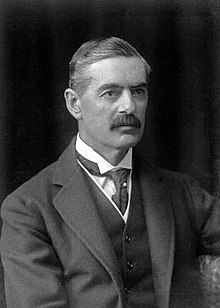Final Council: Difference between revisions
No edit summary |
No edit summary |
||
| Line 1: | Line 1: | ||
{{Nordia Article}} | {{Nordia Article}} | ||
[[File:Final Council Meeting.png|350px|thumb|right|Councilmen meet at the inaugural session in 1690 AN.]] | |||
The '''Final Council''' of the [[Holy Kingdom of Nordia]] is the official legislative arm (and ''de facto'' [[Wikipedia:Parliament|parliament]]) of the nation's government. While possessing no real political power, the council's primary duties are to serve as policy advisors to the [[King of Nordia]] and to settle disputes between the King and the [[Heavenly Emissary of Nordia|Heavenly Emissary]]. | The '''Final Council''' of the [[Holy Kingdom of Nordia]] is the official legislative arm (and ''de facto'' [[Wikipedia:Parliament|parliament]]) of the nation's government. While possessing no real political power, the council's primary duties are to serve as policy advisors to the [[King of Nordia]] and to settle disputes between the King and the [[Heavenly Emissary of Nordia|Heavenly Emissary]]. | ||
In matters of advising the monarch, the Final Council serves to vote on Royal Decrees and based on the outcome of the votes, show the monarch how the law will likely be persevered by the public. In this vein, a majority of the time the King listens to the recommendations of the council and based on the outcome of their votes either goes forward with ratifying or trashes decrees that are being made. The council also is able to draft Royal Decrees for the recommendation of the monarch, though the King is under no legal requirement to pass proposed bills. | In matters of advising the monarch, the Final Council serves to vote on Royal Decrees and based on the outcome of the votes, show the monarch how the law will likely be persevered by the public. In this vein, a majority of the time the King listens to the recommendations of the council and based on the outcome of their votes either goes forward with ratifying or trashes decrees that are being made. The council also is able to draft Royal Decrees for the recommendation of the monarch, though the King is under no legal requirement to pass proposed bills. | ||
Revision as of 19:00, 16 November 2020
The Final Council of the Holy Kingdom of Nordia is the official legislative arm (and de facto parliament) of the nation's government. While possessing no real political power, the council's primary duties are to serve as policy advisors to the King of Nordia and to settle disputes between the King and the Heavenly Emissary.
In matters of advising the monarch, the Final Council serves to vote on Royal Decrees and based on the outcome of the votes, show the monarch how the law will likely be persevered by the public. In this vein, a majority of the time the King listens to the recommendations of the council and based on the outcome of their votes either goes forward with ratifying or trashes decrees that are being made. The council also is able to draft Royal Decrees for the recommendation of the monarch, though the King is under no legal requirement to pass proposed bills.
The other primary job of the Final Council is to settle disputes between the King and the Heavenly Emissary. When such a conflict arises, the council is tasked with listening to both sides and voting in favor of or against one side. Due to this, having a majority influence in the council is crucial to either the King or Emissary if they want to insure majority power over law making in the realm. As such, two major political factions have formed in the council, those being the Royalists and the Papaltarians.
Membership of the council is voluntary and members are elected into office during a national election which occurs at the whim of the monarch (so long as one is held no sooner than six months after the last one, and no longer than five years after the last one). Candidates are elected from local constituencies based around Nordia's two major cities with three seats from Küfara and five seats from Üterlëk. Additionally, thirty additional seats are elected from the various large townships and villages throughout the mainland of Nordia.
Following each election, members of the Final Council vote among themselves for a House Speaker. The speaker is elected from among the councilmen and serves the duration that the current council is in office. The job of the speaker is to serve as a neutral officiator of meetings and as such is unable to vote.

